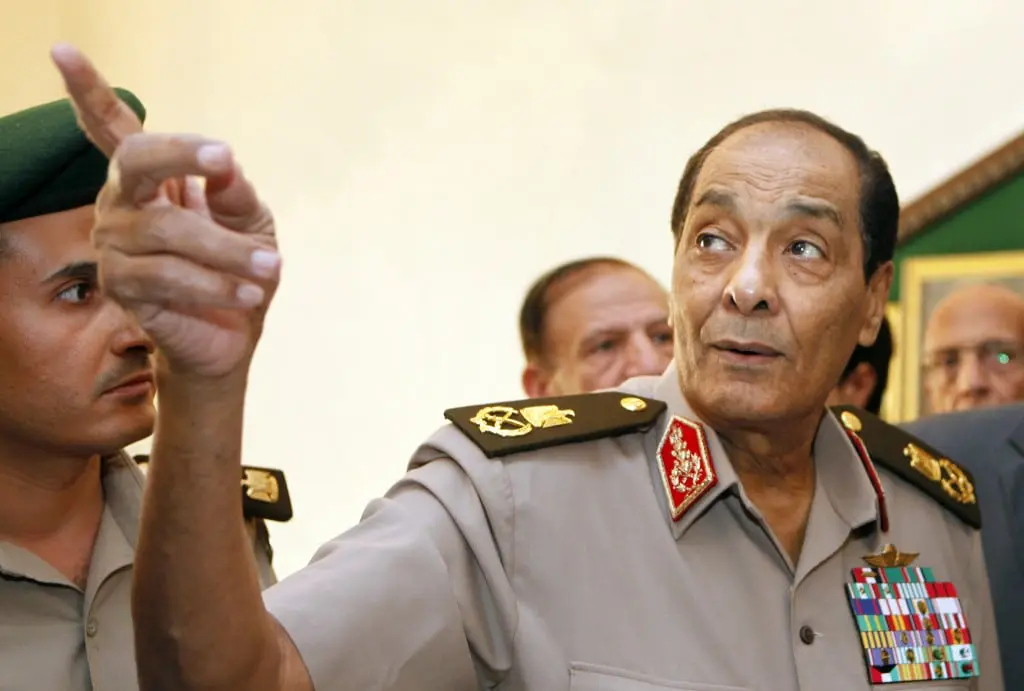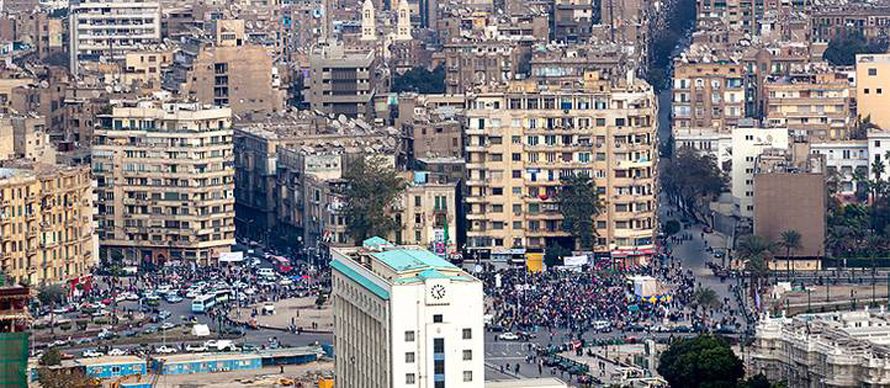
Introduction
The Supreme Council of the Armed Forces (SCAF), which consisted of military commanders, was led by Field Marshall Mohamed Hussein Tantawi (1935). Formerly Mubarak’s Minister of Defence and commander-in-chief of the Egyptian Armed Forces, Tantawi took leadership over SCAF and practically acted as the country’s President. All of which took place in spite of the transitional government that had been installed.
During this period, Egypt was riddled by an increasingly unsafe situation created by the absence of police and security forces on the one hand and the activities of emboldened criminals on the other. Consequently, while various political forces and movements primarily mistrusted the military, a base of supporters emerged amongst the citizens. This was exacerbated by the amplification of the insecure situation in the country by the media and their blaming this on the revolutionaries, particularly those who remained in Tahrir Square.
In need of help, the SCAF initiated talks with the largest opposition group, the Muslim Brotherhood (MB). An uneasy cooperation began between the military and the MB, already visible in the committee the SCAF had installed for the purpose of amending the 1971 Constitution. This committee was headed by Tarek al-Bishri, a distinguished jurist known for his sympathies with the MB, and included well known Muslim Brotherhood lawyer and former MP Subhi Saleh.
The Constitution
The Constitution was a point of debate from the start, because it had been suspended immediately after Mubarak’s resignation, with the intention of drafting a new one after free elections were held.
The SCAF, however, pushed for several minor amendments to the same 1971 Constitution to be accepted before the elections. Moreover, they included various articles that contained measures to curb the power of the President or, rather, to limit the possibilities for presidential candidacy – after the referendum on the issue had taken place. Problematic points were that the Constitution lacked details about the nature of the electoral system and was ambiguous about the promised transition of power to a civilian government.
The referendum on the constitutional amendments took place on 19 March 2011. Both the Muslim Brotherhood and the Salafists pushed for a ‘yes’ vote. Subsequently, the amendments were accepted by 78 percent of the largest turnout of voters in Egyptian history. The turnout is attributed mostly to the euphoria persisting right after the revolution. As time progressed, however, the euphoria dissipated.
Emergency law and violence against protesters
The SCAF had insisted on keeping the emergency law that had been in place since 1981; they arrested, detained, and tortured various revolutionary activists, and civilians were tried in military courts. Additionally, a group of female activists were subjected to what came to be known as ‘virginity tests’ and initially denied involvement.
Not to mention, SCAF were slow to arrest senior figures of the former regime and to set dates for the parliamentary elections after which they promised to hand over rule to a civilian government.
They met the increasing protests with violence. The ‘Maspero’ protests in October 2011, which focused on Coptic Christian rights, were handled particularly brutally. The army killed at least 25 participants and, using state television as a mouthpiece, incited violence against Christians. Subsequently, the SCAF also cracked down on the media, increasingly limiting their freedom of expression.
In the meantime, as demonstrations continued, political activity thrived. Various political parties were established that immediately began preparations for the upcoming elections. The Islamists focused on the elections and showed their allegiance to the military by appearing less and less frequently at the growing demonstrations.
Their efforts to create a firm voting base in the countryside helped them win in the People’s Assembly (PA) elections of November 2011. However, their lack of support for the demonstrators who were attacked by security forces lost them their credibility with the revolutionary forces.

Tahrir Square, February 2012 / Photo Shutterstock
Dwindling Support
Issues came to a head during the Majlis al-Shura (or Consultative Council) elections of 29 January to 22 February 2012, with the massacre of the Ultras Ahlawy, the fans of the Ahly football team in Port Said on February 1. During halftime at a match between al-Ahly and al-Masry, fights broke out between the fans, and the Ahly players were attacked.
Matters got out of hand so badly that at least 79 young men and boys lost their lives and more than 1,000 were wounded. The event was broadcast live on Egyptian television, and information quickly poured in highlighting the lack of security checks of visitors entering the stadium.
Not only had security forces allowed armed people to enter, but they had also removed the barriers separating the teams’ supporters, locked the exits, and turned off the stadium lights.
The lack of immediate action by the army caused outrage. Rumours soon began that this massacre was retribution for the well-known involvement of Ultras Ahlawy in the revolution and subsequent demonstrations. The Islamists did not push the debate on the Port Said massacre in the People’s Assembly. Therefore, demonstrations turned into mass protests against the SCAF and, especially, the Muslim Brotherhood.
Given the general lack of understanding of the significance of the Shura Council in politics, these factors led to extremely low voter turnout in the Shura elections, in which the Islamists again won the majority of seats.
Transitional period under military rule
One of the most important problems of the transitional period under military rule is the lack of clarity regarding the law. Along with the previously mentioned additions to the Constitution of 1971, the SCAF issued a law before the parliamentary elections detailing the formation of new political parties that forbid the establishment of any religiously defined political party.
They did not implement the law, however, and the Freedom and Justice Party of the Muslim Brotherhood and the Nour Party of the Salafists were allowed to run candidates. The laws and regulations regarding the election process itself were often incorrectly implemented. Moreover, the process generally lacked transparency and failed to instil confidence in the voters.
As the country prepared itself for the presidential elections, the Supreme Constitutional Court invalidated sections of the laws governing the election of the People’s Assembly resulting in its dissolvement. In addition, as the votes for the presidential elections were being counted, the SCAF announced a new Constitutional Declaration. It contained amendments and new articles curtailing the powers of the new President and ensuring the supreme power of the military in the state.

